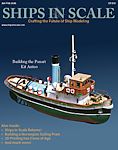Hello all..my two cents.. I have two older Craftsman scroll saws and a Helger..To be honest, I prefer my Craftsman saws.. I will say that I bought the Helger from a friend who had two.. ! Both are 16" I find the Helger to "vibrate" more, the Craftsman seem smoother.....Both are heavy! Don't overlook older machines for cheap.. I have two cheap bandsaw that I got for free..spend the extra money on a good bandsaw.. I also have the Byrnes saw and thickness sander..great machines...my favorite is a 1940's Dunlap small table saw ,, a little larger than the Byrnes..I use it to cut billets which can put too much strain on the Byrnes, but too small for a 10 " table saw. I understand that some have space issues..I am blessed in NY to have ample space, FL not so much! I go from 12X32 to 8X 10 ! Comments? Thanks,
John
John









